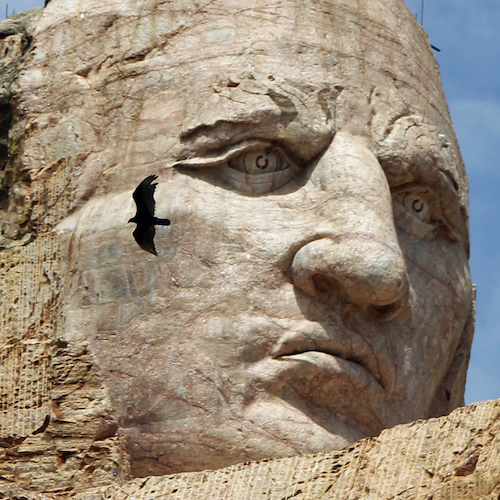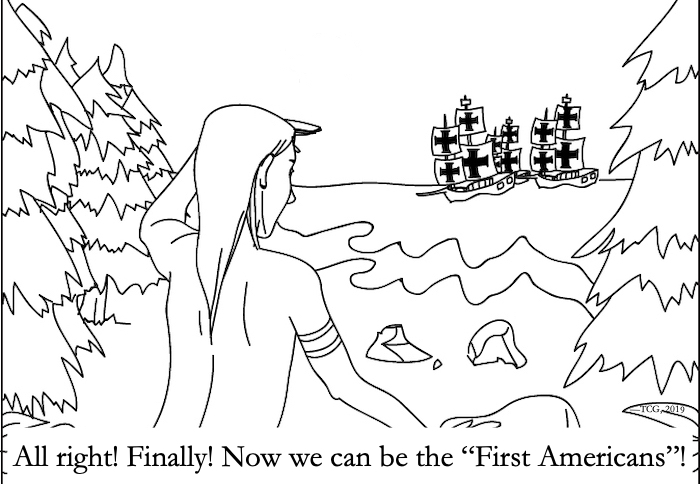--Spring 2022-- Last Updated: 24 March 2022 |
|---|
--Spring 2022-- Last Updated: 24 March 2022 |
|---|
| Contact Info | Syllabus | Schedule |
| MLA Template (WORD doc) | FINAL ESSAY | |
| Group PRESENTATION Guidelines | ||
| Course "NOTES" Page (incl. immediate ASSIGNMENTS) | ||
| |
|---|---|
| OFFICE(s): | 325H Louise Pound Hall / 346 Andrews Hall |
| MAILBOX(es): | 305 Louise Pound Hall / 227 Andrews Hall |
| OFFICE HOURS: | 325H Pound Hall: TU, 11:00-12:00; TH, 11:00-12:00; (COVID adjustment: on TU & TH, you can also ZOOM into my office hours.) 346 Andrews Hall: W, 2:00-3:00; . . . and by appointment . . . and email, of course:::: |
| EMAIL ADDRESS: | tgannon2@unl.edu |
| COURSE WEB PAGE: | < http://tgannon.incolor.com/ETHN201Syll.html > (= this SYLLABUS page) —also accessible via CANVAS |
| ||||||||||||||||||||||||||||||||||||||||||||||||||
|---|---|---|---|---|---|---|---|---|---|---|---|---|---|---|---|---|---|---|---|---|---|---|---|---|---|---|---|---|---|---|---|---|---|---|---|---|---|---|---|---|---|---|---|---|---|---|---|---|---|---|
| "This portrait is not an Indian." — Gerald Vizenor
(This book is out of print. PDFs of all assigned essays therein are available on Canvas. However, there are probably lots of cheap used copies out there, and this might be an easier option than printing out all those PDFs.)
The five informal written RESPONSES will be graded holistically, and be assigned a point total (out of 80 possible) comparable to the final-grade schema above: e.g., an A- = 72 or 73 or 74, a C = 59, 60, or 61, etc. For the FINAL ESSAY assignment, each component of the assignment (content, organization, and grammar/mechanics)—the detailed guidelines of which will be eventually spelled out below on this web syllabus—will be assigned a grade (translated into a point total) based upon the following rubric:
(—see the Course NOTES page at any time for the next class meeting's immediate assignments—)
= = = = Spring Break = = = =
| ||||||||||||||||||||||||||||||||||||||||||||||||||
 |
|---|
  ASSIGNMENT OPTIONS: [—NOTE that, for all options, a specific minimum number of in-class (primary) readings* and outside (secondary) source materials are called for, for an A or B on the main "Content" criterion: see Grading Criteria, below.] 1. "SPORTS & INDIANS": Philip J. Deloria's "I Am Not a Mascot" is a mere tease into this intriguing topic. Using that essay as a starting point (& cited source), develop your own argument regarding the "Indian mascot" controversy. (Let me suggest that one of your "outside" sources be the film In Whose Honor?: American Indian Mascots in Sports [see bib. info below], though you may have to jump through some hoops to find it. . . . Ah, you can now pay to stream it at Vimeo.) 2. "PLAYING INDIAN": Address the current controversy regarding non-Indians dressing up as Natives as fun or fashion statement (e.g., wearing Indian garb on Thanksgiving & Halloween; non-Indian music folks donning Native headdresses in their performances; etc.). Take a stand on this issue, this mainstream CULTURAL APPROPRIATION of Native fashion/dress: that is, where does one draw the line here? As a further option, there are also plenty of web sites out there that are fit fodder for critique: I have in mind such awful web sites as indianheaddress.com—they're made by indigenous folk in—Bali! You might even compare/contrast two web sites (about and/or by Natives). (This works best if one site is much closer to "authenticity" than the far more reprehensible other!) 3. "THE FIRST NEBRASKANS" . . . is the title of the Native American exhibit at the Nebraska History Museum in downtown Lincoln (15th & P). Critique the exhibit as a "text," as a body of REPRESENTATIONS of the Native. (Ask yourself, what would Deloria [etc.] say about this exhibit?) Other options here include the Native exhibit on the 3rd floor of the U of Nebraska State Museum ("Elephant Hall"), or nearby—or Spring Break?—tourist traps like Fort Robinson State Park, etc., etc. (Bonus: your topic, be it museum or tourist venue, counts as one outside source. Just be sure to include it on your Works Cited page.)  4a. "INDIANS: THE MOVIE": See a movie (again?) strong in Native representation (or mis-representation), and critique the movie as—yes, again—a "text," as a body of REPRESENTATIONS of the Native. Of course, matters of stereotyping & authenticity will likely get extensive play here. (Bonus: the film counts as an outside source.) . . . Possibilities include classic Westerns and several old Disney chestnuts, especially Peter Pan. (However: Pocahontas is disallowed as an option, since I "do" that one for another class, and so I have read hundreds of papers about it!) Other options (most suggested by students): Dances with Wolves (1990), of course; Hildalgo (2004)—Vine Deloria, Jr. even spoke out against this one before he died; The New World (2005)—an "update" of the Pocahontas story; and Avatar (2009). Oh, and of course: The Lone Ranger (2013)! As a further option, you might compare/contrast two movies (about and/or by Natives). For instance, an old John Wayne movie "versus" Smoke Signals might be fun and revealing. [New/2022:] 4b. "INDIANS: THE STREAMING SERIES": (I apologize for the classism inherent in this prompt; I only recently started subscribing to Netflix and Hulu myself): Apply 4a to a streaming TV series instead. If you're a fan of Reservation Dogs, or Longmire, or Yellowstone, etc., discuss several episodes in terms of a) the series' representation of its Indigenous characters, plot lines, etc.; and/or b) its presentation of specific Native historical or contemporary issues. For instance, "'Native Spirituality' in Longmire""; or "Hey, Why Does Henry Standing Bear Always Talk That Way?!" 5. "ENGLISH MAJOR" time?!: Of course, the two "literary" Natives we spent the most time on were Zitkala-Ša and N. Scott Momaday. ([Added later:] Leslie Marmon Silko would be another good choice.) Choose one of them and develop your own focused thesis about this writer. (Your "outside" texts should, of course, be by or about said author.) If you're interested in another writer by whom we've read several works, see the next option:::: [New/2022:] 6. "THE TWO DELORIAS": We've read several essays/chapters by Vine Deloria, Jr. and an entire book (presumably) by his son Philip. Develop a focused thesis that compares and contrasts the two Delorias in terms of "theme," style, tone, "effectiveness" of message, importance to Native American Studies, etc. [New/2022:] 7. "CONTEMPORARY INDIAN HUMOR": Tiffany Midge's Bury My Heart At Chuck E. Cheese's (2019) is a collection of (very short/blog-length) humorous essays, the best of which I've scanned and put on Canvas (in the "07 MIDGE, Tiffany" ƒ). Discuss at least FIVE of these essays as examples of how the various Native "topics & issues" of this course are very much with us today. (Try to focus your discussion on a single "theme" or set of related themes, e.g., stereotypes or "pretendians." . . . NOTE: The Midge essays count as one "outside" source—that is, the book Bury My Heart . . . .) [New/2022 (Late add!):] 8. CONTEMPORARY INDIGENEITY & THE VISUAL ARTS: "Read" several (3-6?) of the visual works in the Great Plains Art Museum's exhibit called "Contemporary Indigeneity 2022"—on display from April 1st thru August 20th—in terms of (again) the various Native "topics & issues" of this course. (Indeed, the curators explicitly chose "Indigenous artists addressing issues and themes relevant to the contemporary Native American experience on the Great Plains." See their WEB PAGE for more details on the exhibit.) Remember that day we looked at Native paintings? This could be great fun. BTW, cell-phone photos of the works attached at the end of yr essay would be very helpful! And again, the museum exhibit counts as an "outside" source. 9. "IN THE NEXT WORLD, YOU'RE ON YOUR OWN": Devise a focused topic/thesis of your own that focuses on Native history/issues/literature/art/music/????. (A specific contemporary issue/controversy [e.g.: MMIW; the DAPL protest] works best.) You must get permission from me, however, at least two weeks before the due date (that is, TH, April 28th). The standard source requirements (see below) still apply. 10. As an alternative to a formal essay, develop a WEB SITE on ANY of the previous options!—with quots. from our texts, your own commentary, accompanying graphics, etc. Consider your audience the general public, in need of some edification regarding Native matters. A series of web pages well organized via links would be in order, of course. (The source requirements, again, remain the same. But don't worry about a Works Cited page: you can cite your sources more informally, after the quotations, etc.) . . . (There are a number of free web service sites for such a project, including wix.com.)
** LENGTH & FORMAT: At least 1,500 words (approx. 6 pages, not counting Works Cited page); double-spaced throughout according to MLA specifications; uploaded to CANVAS as an MS WORD file. (Web site?: send me the URL and also upload PDFs [or screenshots] of each page of yr project.)
* Note on WEB sources: there are plenty of good'n'valid "print" sources that have been made available on the web, as in online newspaper and academic journal articles (available via searches in MLAB, EBSCO, etc.). But there is also a whole lot of complete CRAP about Natives on the internet. Especially avoid faux-Indian-spirituality b.s. websites, sites that claim that certain "symbols" apply to all Native tribes, sites selling portable sweat lodges & weekend "vision quests," etc., etc. This class should have empowered you by now with enough background knowledge to see such sites for what they truly are. (Of course, alternatively, these would be great sources to CRITIQUE in yr essay!) ==== WORKS CITED SAMPLE ENTRIES ==== Gannon 7 Works Cited The First Nebraskans. Nebraska History Museum, Lincoln. Accessed 18 Feb. 2018. [<--change date "accessed"!] Gannon, Thomas C. "Great 'Indian' Moments in Pop Culture: 1950's." Great "Indian" Moments in Pop Culture, 25 July 2012, tgannon.incolor.com/GreatIndian50.html. Accessed 13 Feb. 2018. [For a web page with a known (usually corporate or university) publisher, see Schilling entry, below.] Hogan, Linda. "The Voyagers." Trout 762-767. [full, non-cross-referenced version:] Hogan, Linda. "The Voyagers." Native American Literature: An Anthology, edited by Lawana Trout, NTC, 1999, pp. 762-767. In Whose Honor?: American Indian Mascots in Sports. Dir. Jay Rosenstein, New Day Films, 1997. DVD. Kidwell, Clara Sue, and Alan Velie. Native American Studies. U of Nebraska P, 2005. Lobo, Susan, Steve Talbot, and Traci L. Morris, eds. Native American Voices: A Reader. 3rd ed., Prentice Hall, 2010. Newcombe, Steven. "Five Hundred Years of Injustice: The Legacy of Fifteenth Century Religious Prejudice." Lobo, Talbot, and Morris 101-104. [full, non-cross-referenced version:] Newcombe, Steven. "Five Hundred Years of Injustice: The Legacy of Fifteenth Century Religious Prejudice." Native American Voices: A Reader, edited by Susan Lobo, Steve Talbot, and Traci L. Morris, 3rd ed., Prentice Hall, 2010, pp. 101-104. Schilling, Vincent. "Outrage as non-Native youth wearing #MAGA hats taunt and disrespect Native elder." Indian Country Today, News Maven, 19 Jan. 2019, newsmaven.io/indiancountrytoday/news/outrage-as-non-native-youth-wearing-maga-hats-taunt-and-disrespect-native-elder-jy7UVwdg8kK2uvT0L-JOig/. Accessed 22 Feb. 2016. Trout, Lawana, ed. Native American Literature: An Anthology. NTC, 1999. [For my PDFs on Canvas, the complete Works Cited info is often supplied on the first page. If unavailable, use the following, filling in the specific info & omitting the square brackets:] [Author's Last Name, First Name]. "[Poem or Short Story or Essay Title]." ETHN 201, UNL Canvas, 2019. PDF file.
| |||||||||||||||||||||||||||||||||||||
| To the Top |
ETHN 201 SYLLABUS Page--Spring 2022 < http://incolor.inetnebr.com/tgannon/ETHN201Syll.html > |